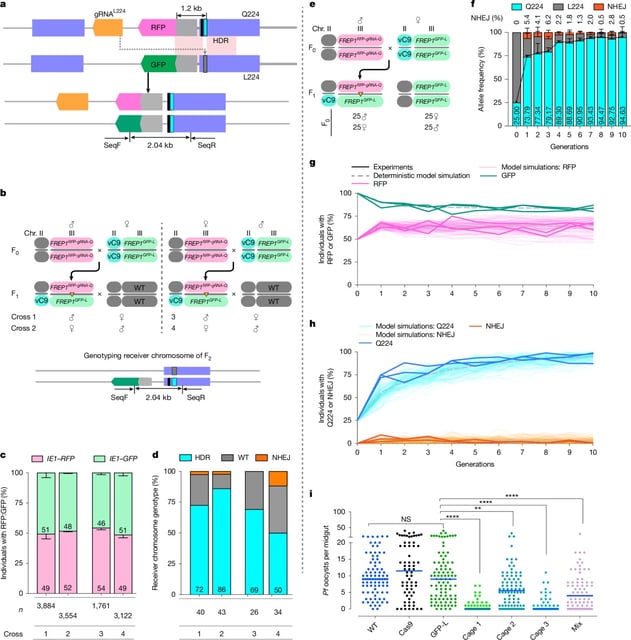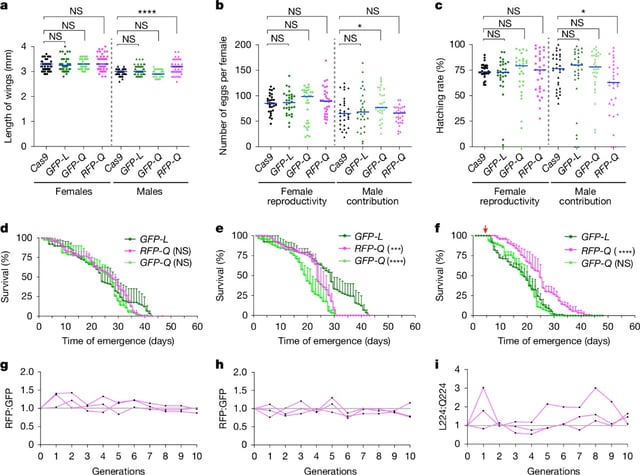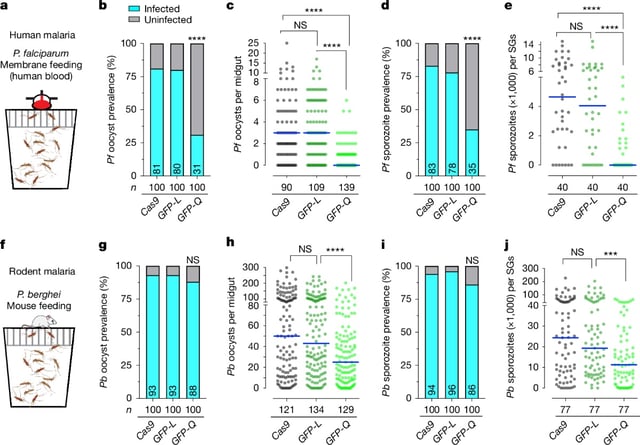Overview
- The gene-editing system uses CRISPR-Cas9 to convert the FREP1 L224 amino acid to a naturally occurring Q224 variant that blocks malaria parasites.
- Tests in Anopheles stephensi showed the Q224 allele stops two Plasmodium species from reaching mosquito salivary glands without affecting growth, reproduction or survival.
- A self-propagating allelic-drive is engineered to spread the Q224 trait through wild populations before self-eliminating once the variant is fixed.
- Researchers from UC San Diego, Johns Hopkins, UC Berkeley and the University of São Paulo led the interdisciplinary study published in Nature.
- Teams are now probing how the Q224 change blocks parasite transit and planning to combine the drive with bed nets, insecticides and antiparasitic drugs for field trials.



